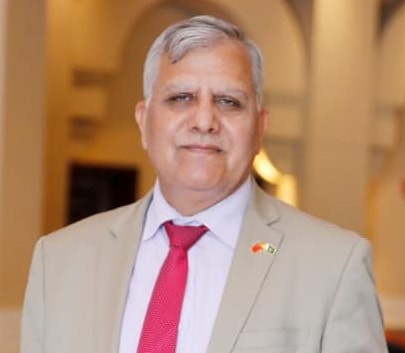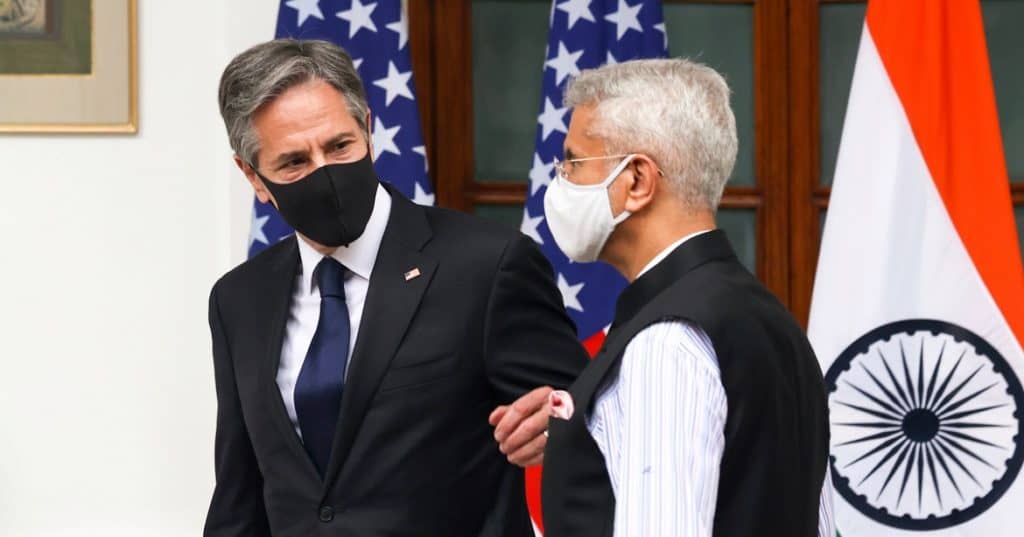By Prof. Engr. Zamir Ahmed Awan
The Alaska meeting held between Chinese and American senior officials in March 2021 was the first high-level meeting between senior officials of two countries.

The Deputy Secretary of State Wendy Sherman traveled to the People’s Republic of China for meetings with State Councilor and Foreign Minister Wang Yi and other senior officials from July 25-26, 2021. The meetings were held in the port city of Tian Jin, some 160 km from Beijing, the capital of China. The meetings covered a wide range of issues, including the cases of American and Canadian citizens detained in the PRC or under exit bans.
The Deputy Secretary reiterated concerns about China’s cooperation with the World Health Organization and allowing a second-phase investigation into COVID-19’s origins. At the same time, the Deputy Secretary affirmed the importance of collaboration in areas of global interest, such as the climate crisis, counter-narcotics, non-proliferation and regional concerns, including DPRK, Iran, Afghanistan, and Burma.
It was encouraging that the initiative was aimed to narrow down the differences between the two global powers – China and the US. Theoretically, it was the right approach to resolve all disputes and differences diplomatically, through dialogue, in an amicable manner, even it was observed that the US side was rather aggressive and prompting the differences only. It seemed that the purpose was to bash China and coerce China. As a result, the net outcome of the visit was described by China’s Vice Foreign Minister Xie Feng who told the U.S. Deputy Secretary of State Wendy Sherman that the two countries’ relationship “is now in a stalemate and faces serious difficulties.”
The U.S. has accelerated diplomatic activities in this region, around China, which is a matter of severe concern for the whole region. The U.S. is ganging up and making anti-China alliances in this region, a direct threat to regional peace, security, and stability.
Lloyd J. Austin, United States Secretary of Defense, visited Singapore on 26-28 July 2021. He met with Minister for Defense Dr. Ng Eng Hen and other senior officials. He also called on Prime Minister Lee Hsien Loong. During the meeting, Dr. Ng and Secretary Austin reaffirmed the excellent and long-standing bilateral defense relations between Singapore and the U.S. Dr. Ng and Secretary Austin exchanged views on geopolitical developments and regional security issues and agreed on the U.S.’ continued engagement in the region. It is worth mentioning that Singapore is situated at a very strategic location—the Strait of Malaka—and can block all the trade-ins or outs of China. The U.S. visit at a particular time, where the tension between China and the U.S. is heightening up, is meaningful and creates many doubts.
On July 27 and 28, Secretary of State Antony Blinken visited India for the first time since President Biden’s inauguration. Washington Post described the visit, noting that “on July 27, the State Department reaffirmed U.S. support for ‘India’s emergence as a leading global power and vital partner’ in the Indo-Pacific, a geographic label that has taken over U.S. bureaucratic speak to highlight India’s importance in contemporary Asia”.
However, after this visit, India has obviously joined the U.S. club and spoiled its relations with all the neighbors: with China, the country is in the state of war on LAC, with Pakistan is also in the same status on Kashmir LOC, with Bangladesh having severe issues on border disputes and trade disputes. With Nepal, the territorial claims and border disputes have heightened the tensions, with Sri Lanka political and trade differences are still there, political and security issues with the Maldives remain a flashpoint, the border, territorial, and ethnic problems with Myanmar are significant differences.
The U.S. vice president, Kamala Harris, will soon visit Vietnam and Singapore. It will be part of America’s anti-China campaign and a matter of grave concern for the regional countries. If something goes wrong between China and the U.S., it will hurt the whole region.
The situation in Afghanistan and heavy pressures on Pakistan are also taking dangerous turns. A;l the regional nations must play their positive role to resolve Afghan issue amicably, without any further bloodshed.
It is time to preserve the peace, security, and stability of the whole region. All regional countries, must protect their national interests and avoid any foreign interventions. The whole region is on the path of development and progress, any misadventure may turn the whole developmental scenario into disaster. It is appealed to all nations and countries, especially in this part of the world to think smartly and preserve peace, security, and stability and focus on economic developments, and eradication of poverty and overcome natural disaster, The human-made disasters must be averted.
Author: Prof. Engr. Zamir Ahmed Awan – Sinologist (ex-Diplomat), Editor, Analyst, Non-Resident Fellow of CCG (Center for China and Globalization), National University of Sciences and Technology (NUST), Islamabad, Pakistan.
(The views expressed belong only to the author and the publication of the article does not necessarily imply the endorsement of its content by World Geostrategic Insights).
Image Credit: Jonathan Ernst/Reuters







